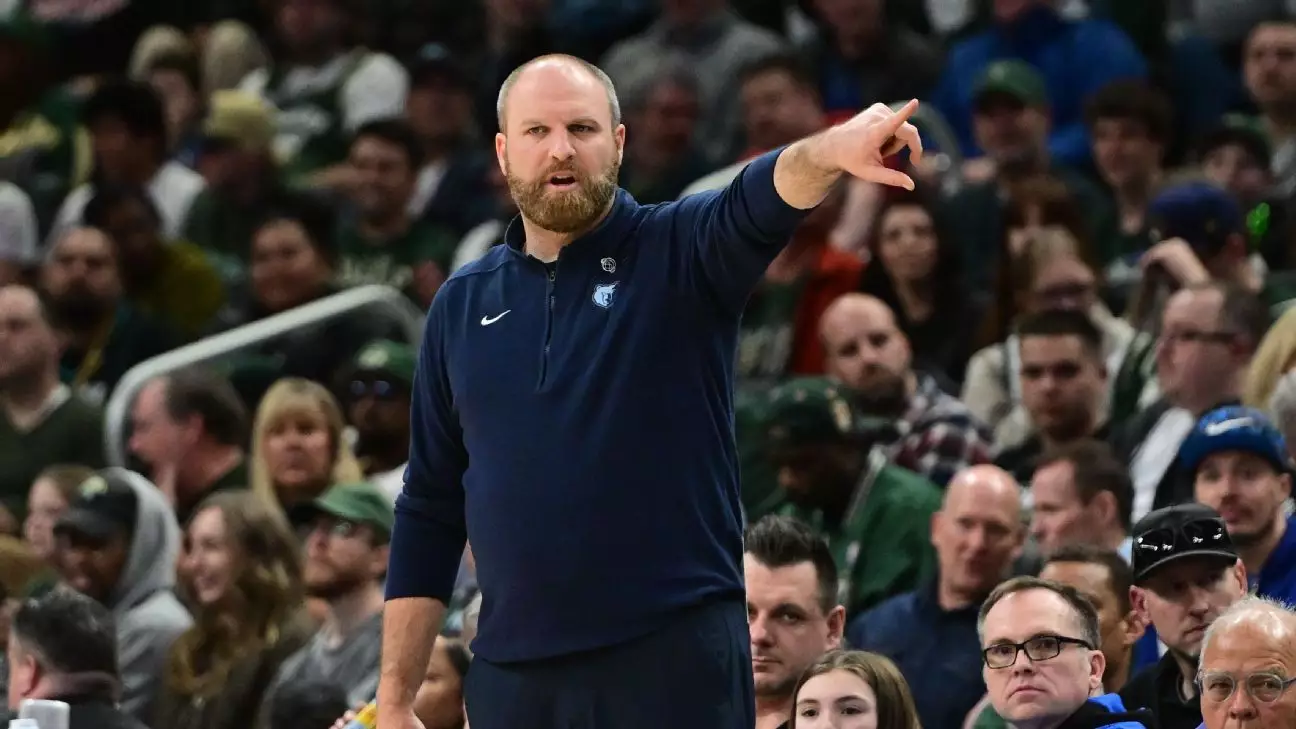The recent decision by the Memphis Grizzlies to part ways with head coach Taylor Jenkins sent shockwaves through the basketball community. Jenkins, the franchise’s winningest coach, was dismissed amidst a disheartening stretch run that threatened the team’s postseason aspirations. This surprising move raises crucial questions about the direction of the organization and the impact of its leadership decisions, particularly in the context of ongoing franchise struggles.
The Notable Achievements of Jenkins
During his tenure since the 2019-20 season, Jenkins fortified his legacy with the Grizzlies, culminating in three playoff appearances and a coveted series victory. He brought an offensive philosophy centered around spacing and player development, which resonated well with rising star Ja Morant, the 2020 Rookie of the Year. Jenkins’ record of 250 wins against 214 losses indicates a commendable level of success, especially considering the Grizzlies’ tumultuous path over the past few years, marred by injuries and off-court issues surrounding Morant. However, this analysis gives rise to a crucial perspective: did Jenkins’ strategic choices adequately keep up with the evolving imperative of sustained excellence in the competitive environment of the NBA?
The Inevitable Decline and Dissonance
The crux of Jenkins’ departure stems from the recent downturn in performance. A spurious 8-11 record since the All-Star break and back-to-back losses in critical matchups highlighted the team’s defensive deficiencies and inconsistency on offense. The narrative of Memphis as a formidable contender began to falter, particularly against teams boasting winning records, contributing to a growing sentiment of unrest among fans and management alike. Moreover, Jenkins’ adjustments, although well-intentioned, seemed inadequate in responding to intense defensive pressures from opponents.
Furthermore, the Grizzlies’ previous successes largely stemmed from dominating inferior teams, raising the uncomfortable notion that the franchise might have sheltered itself from confronting more formidable adversaries. One cannot help but ponder whether Jenkins’ vision was enough to transition the Grizzlies into a resilient playoff powerhouse or whether it was merely an artificial success bolstered by favorable matchups.
Managing Expectations and Future Aspirations
While firing a head coach, especially one with a winning pedigree, tends to signal a shake-up in organizational philosophy, it’s essential to recognize the critical interplay between player injuries and coaching efficacy. The recent absence of Morant due to a strained hamstring illustrates how pivotal he is to the Grizzlies’ success. The subsequent lack of consistency and rhythm on the court further emphasizes the need for adaptive strategies and timely decision-making—a trait Jenkins demonstrated but perhaps failed to execute passionately as the stakes intensified.
By appointing a new head coach, the Grizzlies have a vital opportunity to recalibrate not just their play but their entire strategic vision. The transition period demands careful evaluation of player resources and an emphasis on fostering a fortified team identity. The interim coach’s appointment looms large, as this choice will be instrumental in both stabilizing momentum and shaping the immediate trajectory of the franchise.
Unpacking the Future: A Call for Input and Adaptation
Looking ahead, the Grizzlies must learn that success extends beyond mere victory counts and winning percentages; it hinges on the ability to adapt swiftly and effectively to internal and external pressures. As the playoff picture crystallizes and competition stiffens, retaining a sense of flexibility within the roster and optimizing tactical approaches will be paramount to reestablishing Memphis as a true contender.
This departure from Jenkins also highlights broader themes within the NBA, where coaching changes suggest that the margins for error continue to shrink. Organizations are under immense pressure to secure victories—especially when they boast burgeoning talents laden with potential. The Grizzlies need nuanced insight regarding player management to leverage their strengths without losing sight of team cohesion.
In essence, Taylor Jenkins’ exit is not merely a personnel change; it signifies an ongoing evolution of the Memphis Grizzlies—a chance for deep reflection, decisive action, and hopefully, a return to glory in the hardwood battleground.

